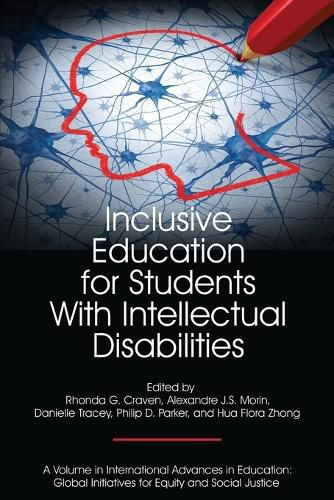Readings Newsletter
Become a Readings Member to make your shopping experience even easier.
Sign in or sign up for free!
You’re not far away from qualifying for FREE standard shipping within Australia
You’ve qualified for FREE standard shipping within Australia
The cart is loading…






This title is printed to order. This book may have been self-published. If so, we cannot guarantee the quality of the content. In the main most books will have gone through the editing process however some may not. We therefore suggest that you be aware of this before ordering this book. If in doubt check either the author or publisher’s details as we are unable to accept any returns unless they are faulty. Please contact us if you have any questions.
As a social justice endeavour, one of the goals of inclusive education is to bolster the education of all students by promoting equal opportunities for all, and investing sufficient support, curriculum and pedagogy that cultivates high self-concepts, emphasizes students’ strengths rather than weaknesses, and assists students to reach their optimal potential to make a contribution to society. Dedicated to the identification of international strategies to achieve this goal, Inclusive Education for Students with Intellectual Disabilities presents examples of theory, research, policy, and practice that will advance our understanding of how best to educate and more generally structure educational environments to promote social justice and equity. Importantly, this discussion transcends research methodology, context, and geographical locations and may lead to far-reaching applications. As such, the focus is placed on research-derived educational and psycho-educative practices that seed success for students with intellectual disabilities in inclusive educational settings and the volume showcases new directions in theory, research, and practice that may inform the education and psychosocial development of students with intellectual disabilities globally.
The chapter contributors in this volume consist of 31 scholars from ten different countries, and they come from a great variety of research areas (i.e., teacher education, educational psychology, special education and disability policy, special needs and inclusive education, health sciences). This volume, with a series of subsections, offers insights and useful strategies to promote meaningful advances for students with intellectual disabilities globally.
$9.00 standard shipping within Australia
FREE standard shipping within Australia for orders over $100.00
Express & International shipping calculated at checkout
This title is printed to order. This book may have been self-published. If so, we cannot guarantee the quality of the content. In the main most books will have gone through the editing process however some may not. We therefore suggest that you be aware of this before ordering this book. If in doubt check either the author or publisher’s details as we are unable to accept any returns unless they are faulty. Please contact us if you have any questions.
As a social justice endeavour, one of the goals of inclusive education is to bolster the education of all students by promoting equal opportunities for all, and investing sufficient support, curriculum and pedagogy that cultivates high self-concepts, emphasizes students’ strengths rather than weaknesses, and assists students to reach their optimal potential to make a contribution to society. Dedicated to the identification of international strategies to achieve this goal, Inclusive Education for Students with Intellectual Disabilities presents examples of theory, research, policy, and practice that will advance our understanding of how best to educate and more generally structure educational environments to promote social justice and equity. Importantly, this discussion transcends research methodology, context, and geographical locations and may lead to far-reaching applications. As such, the focus is placed on research-derived educational and psycho-educative practices that seed success for students with intellectual disabilities in inclusive educational settings and the volume showcases new directions in theory, research, and practice that may inform the education and psychosocial development of students with intellectual disabilities globally.
The chapter contributors in this volume consist of 31 scholars from ten different countries, and they come from a great variety of research areas (i.e., teacher education, educational psychology, special education and disability policy, special needs and inclusive education, health sciences). This volume, with a series of subsections, offers insights and useful strategies to promote meaningful advances for students with intellectual disabilities globally.